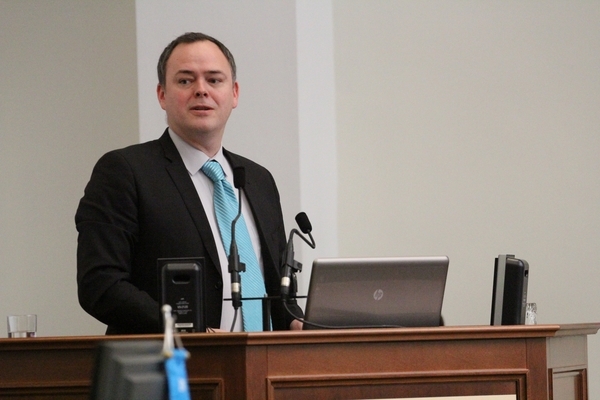There was drama at the Supreme Court yesterday when Tsatsu Tsikata chickened out of an application for review whilst leading the opposition National Democratic Congress (NDC) to pursue the voters’ register case which was thrown out by the court recently.
Mr. Tsikata filed the application for review on July 24, asking the apex court to reconsider its decision that the old voters’ card could not be used as proof of identification for the ongoing voters’ registration exercise which was nearing completion.
As part of the processes to move the application, the Supreme Court registry fixed the hearing for yesterday and when the case was called, it was clear that the Attorney General (AG) and the Electoral Commission (EC), who were sued by the NDC, had been deprived of the mandatory 14 days to respond to Mr. Tsikata’s application.
In spite of the time constraint, the Deputy AG, Godfred Yeboah Dame, was able to file his response on Tuesday while Justin Amenuvor, representing the EC, also filed his response in the morning of yesterday before the court sat.
Abridge Time
Before the processes could be completed, Mr. Tsikata again filed an application to abridge the hearing time and sought to bring the time the motion should be heard forward.
The court then decided to hear both motions filed by the NDC lawyer, and the court first considered the application for review. In spite of the constraints, the AG and the EC said they were prepared to go along with the case and raised no objection.
The court then granted the application to abridge the time filed by Mr. Tsikata and was, therefore, asked to move his motion for the review.
No Motion
Mr. Tsikata got up and said he was not ready because he said he had just seen the EC’s affidavit to his review application and needed time to reply to the commission.
Mr. Dame took the floor and said Mr. Tsikata’s position was not supported by the rules.
The Deputy AG insisted that Mr. Tsikata had not shown any serious point of law that he would need time to file and the court agreed with the position of the AG and the EC.
First Round
The judges then retired to the chamber and returned to dismiss Mr. Tsikata’s oral application for extension of time to file supplementary affidavit and asked him to move his motion for review, but he insisted that he was not ready and that the court should adjourn the matter into the legal vacation.
Mr. Dame then fired that Mr. Tsikata was seeking to run away from his own application because if there was anyone to complain about the processes, it should be the AG and the EC and not the NDC.
Right Time
The Deputy AG said the matter was ripe for hearing and Mr. Tsikata “should not, under the guise of creating an impression that he was being impeded,” run away from his own case.
He said everything needed about the application had been filed on paper by the parties and the court can decide the matter.
The court subsequently said the application for an adjournment by Mr. Tsikata was not in accordance with the rules, adding that they considered all the processes in the matter and dismissed the application.
Suits
In late March, this year, the NDC sued the AG and attached the EC over the decision of the commission to compile a new voters’ register for the 2020 presidential and parliamentary elections.
The party wanted the Supreme Court to declare that the EC, per the 1992 Constitution, could only compile a voters’ register once and subsequently review it over time and not compile a new one instead.
The NDC was also challenging the decision of the EC to exclude the existing voters’ ID cards as a document for verification of citizenship.
The party later abandoned its first relief that the EC could not compile a voters’ register on multiple occasions and was rather pushing for the inclusion of the current voters’ ID cards as basis for proof of citizenship.
Besides, Mr. Takyi-Banson filed another suit seeking a similar suit except that he wanted birth certificates to be used as a document for proof of nationality.
The AG, which is a respondent in the case, opposed the suits through the Deputy AG, stating that the NDC’s position was “patently absurd, far-fetched, outrageous and grossly erroneous.”
The EC, in its opposition filed by its counsel, Justin Amenuvor, also contended that the NDC interpreted the Constitutional Article to suit its parochial interest.
It was the case of the EC that the current register of voters was over bloated and a new credible one was needed for the future.
A seven-member panel of the court, presided over by the Chief Justice, Justice Anin-Yeboah, with Justices Jones Dotse, Paul Baffoe-Bonnie, Sule Gbadegbe, Samuel Marful-Sau, Nene Amegatcher and Prof. Nii Ashie Kotey assisting, in a unanimous decision, also ordered the EC to compile a new register pursuant to Constitutional Instrument 126 (C.I. 126), which was passed by Parliament recently.
Review
Not satisfied with the decision of the court, the NDC filed an application seeking the Supreme Court to review its decision.










Discussion about this post